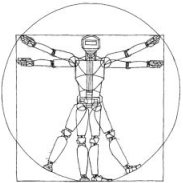Robotics: Science and Systems XVIII
CALI: Coarse-to-Fine ALIgnments Based Unsupervised Domain Adaptation of Traversability Prediction for Deployable Autonomous Navigation
Zheng Chen, Durgakant Pushp, Lantao LiuAbstract:
Traversability prediction is a fundamental perception capability for autonomous navigation. The diversity of data in different domains imposes significant gaps to the prediction performance of the perception model. In this work, we make efforts to reduce the gaps by proposing a novel coarse-to-fine unsupervised domain adaptation (UDA) model - CALI. Our aim is to transfer the perception model with high data efficiency, eliminate the prohibitively expensive data labeling, and improve the generalization capability during the adaptation from easy-to-obtain source domains to various challenging target domains. We prove that a combination of a coarse alignment and a fine alignment can be beneficial to each other and further design a first-coarse-then-fine alignment process. This proposed work bridges theoretical analyses and algorithm designs, leading to an efficient UDA model with easy and stable training. We show the advantages of our proposed model over multiple baselines in several challenging domain adaptation setups. To further validate the effectiveness of our model, we then combine our perception model with a visual planner to build a navigation system and show the high reliability of our model in complex natural environments where no labeled data is available. The robot navigation demonstration can be seen in this video: https://www.youtube.com/watch?v=Nqsegaq x-o.
Bibtex:
@INPROCEEDINGS{Chen-RSS-22,
AUTHOR = {Zheng Chen AND Durgakant Pushp AND Lantao Liu},
TITLE = {{CALI: Coarse-to-Fine ALIgnments Based Unsupervised Domain Adaptation of Traversability Prediction for Deployable Autonomous Navigation}},
BOOKTITLE = {Proceedings of Robotics: Science and Systems},
YEAR = {2022},
ADDRESS = {New York City, NY, USA},
MONTH = {June},
DOI = {10.15607/RSS.2022.XVIII.056}
}
